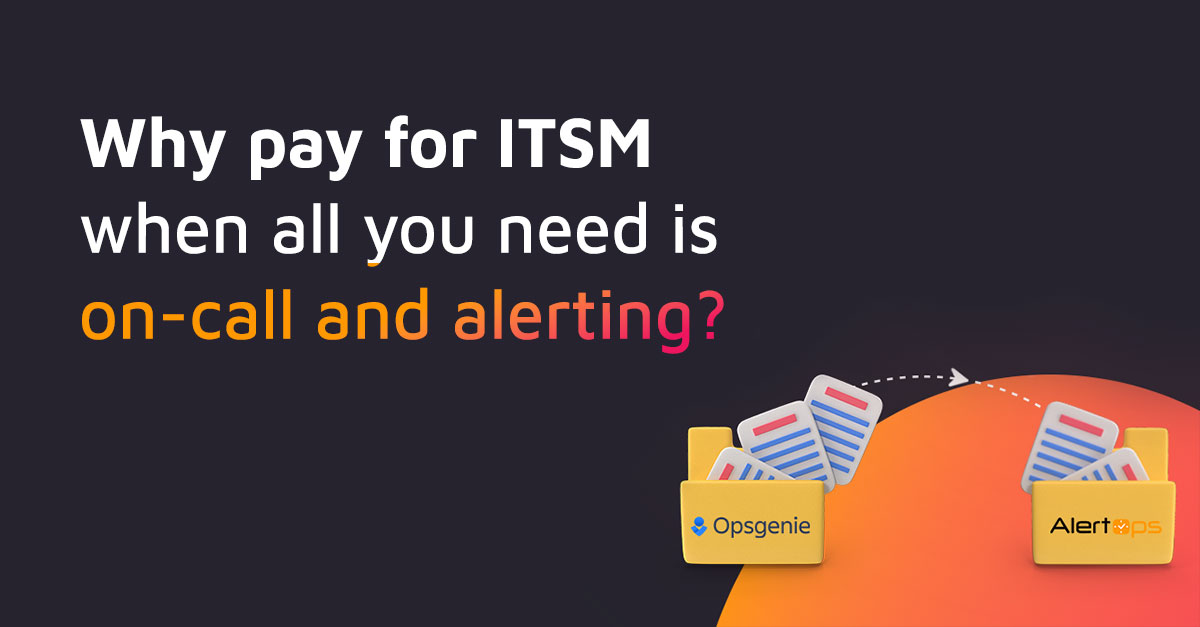Major incidents often cause mass confusion making it difficult to figure out how to effectively notify your customers. Having a successful incident response communication plan during an incident actively demonstrates to your customers that you are aware of the situation and actively working to resolve it, resulting in a better customer experience.
Notify your customers as quickly as possible because every minute counts and is costing your customers money, don’t waste any time. A reliable incident-management system allows you to notify your customers during a major incident.
1. Get Ahead of the Incident
Getting ahead of the major incident is crucial, and with important information your customers will want to be kept in to the loop both during and after the major incident. Save the detailed and technical messages for your services desk teams. Customers seek information on the problem, severity, impact on their business, and the expected resolution timeframe during a major incident. When communicating the incident with your business partner, maintain the right tone, avoid blaming other systems, and take responsibility. Remember that proactively spreading the word to your customers will helps build their trust. Your customers will value your honesty and will help grow your future by talking about your outages.

AlertOps’ workflows actively send quick updates, providing real-time information on major incidents and resolutions to customers and support teams. Silence can lead to customer frustration, regardless of the time of day. With AlertOps, you can promptly send updates and ensure a continuous flow of information. Regular status updates will show your customers that you are still working to resolve the outage. Keep in mind that your customers have customers too and need to stay on top of the major incident. AlertOps’ workflows will help reach out to your customers before they feel the impact of the major incident.
2. Provide Specific & Timely Contact
Resolution teams require specific details and action plans in place because major incidents have an impact on your business within minutes, even before incident resolution teams get involved. Meeting your customers SLAs isn’t enough! You are under their microscope during major incidents and they want immediate contact. AlertOps’ message rules and workflows allow you to customize unique messages for each audience: the incident resolvers, IT department, managers and business partners. This capability allows for the active sending of tailored messages throughout the incident resolution process.
3. Manage Constantly Changing Scenarios
During a major incident in connected enterprises, the impact can trigger a domino effect, leading to multiple additional incidents. To effectively communicate with specific teams, resolution teams need specific details and call-to-actions for rapid engagement and information. When informing external clients, actively address the problem, assure them that you are handling it, and provide clear expectations for the next steps without overwhelming them with unnecessary details.
AlertOps facilitates communication during incidents through the use of message templates and integrations between communication, ticketing, and monitoring systems. This feature enables the platform to automatically send messages without distracting resolution or operations teams from their tasks, allowing it to trigger and target multiple messages to specific groups.
In terms of team management, AlertOps employs on-call scheduling, groups, and skill sets. During a major incident, specific individuals are rarely searched for; instead, specific roles or skill sets are identified. AlertOps also incorporates message rules that regulate the frequency of incident response communication based on alerts and resolution time.
In AlertOps, escalations actively trigger communication, ensuring prompt action. To significantly reduce resolution time and gather troubleshooting data, incident response often utilizes a conference bridge for proactive communication. Your business partners value insights from your incident response and assurance that you have taken necessary measures to prevent future critical outages.
4. Automate Processes During Major Incidents
Keep in mind that during a major incident response communication is as crucial as the events that are changed and updated.
Major incidents often send a ripple effect through your organization and your customers. They gain confidence when you identify the root cause of the problem and implement processes to mitigate the risk of similar incidents.
Learn to trigger and use proactive communication with AlertOps’ workflows during major incidents for everyone involved.
AlertOps’ Workflows can manage your service levels allowing you to send reminders to incident owners at regular intervals or send reminders off of an SLA deadline. Workflows can also trigger other flows as well, such as change control processes needed to resolve major incident.



